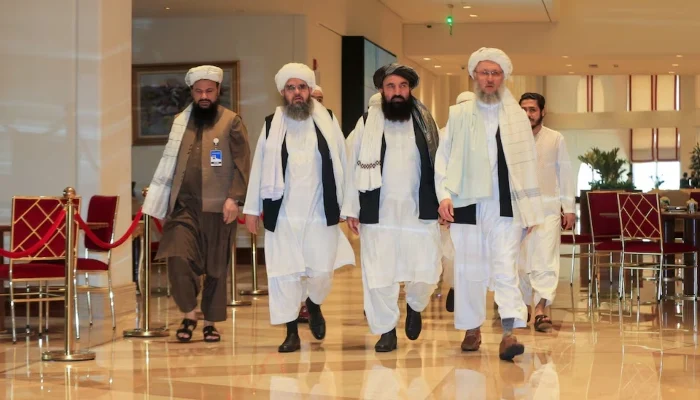Pakistan to Join UN-Hosted Doha Talks on Afghanistan This Weekend
Pakistan will participate in the United Nations-hosted talks on Afghanistan scheduled for this weekend in Doha, Qatar. Diplomatic sources confirmed this decision to Geo News on Thursday.
The Taliban authorities also confirmed their attendance for the third round of the Doha talks set to commence on June 30, following their boycott of the previous round. Pakistan will be represented by Special Representative on Afghanistan Asif Durrani and Ahmad Naseem Warraich, Assistant Secretary for West Asia in the Ministry of Foreign Affairs.
Pakistan has consistently urged the Taliban government to prevent its territory from being used for cross-border terrorism by groups such as the Tehreek-e-Taliban Pakistan (TTP) and other terrorist organizations.
The Afghan Taliban’s interim government boycotted the second round of Doha talks in 2024 due to the participation of women and civil society representatives. This round will mark the first instance of Afghanistan’s interim administration engaging directly with special representatives on Afghanistan from various parts of the world.
Prior to the talks, the United Nations consulted with representatives of the Afghan civil society, both within and outside Afghanistan. Following the main discussions, civil society members and women representatives will engage with the special representatives on July 2.
Diplomatic sources clarified that the third round of Doha talks will not address the recognition of the Afghan Taliban and Afghanistan’s interim government. Restrictions on women’s rights remain a significant barrier to Afghanistan’s reintegration into the international community, as highlighted by a senior UN official on June 21. The Taliban’s participation in the upcoming talks does not equate to the legitimization of their government, which has not been formally recognized by any nation since their return to power in 2021.
UNAMA head Roza Otunbayeva emphasized that the restrictions on women and girls, especially in education, deprive Afghanistan of vital human capital and lead to a brain drain that hampers the country’s future development.
The outcome of these talks remains crucial for the stability and future of Afghanistan, as well as for regional security dynamics involving Pakistan and its efforts to curb terrorism.



